Tian Zhuangzhuang is a Actor, Director, Scriptwriter, Producer, Director of Photography, Production Design and Original Music Composer Chinois born on 26 april 1952 at Beijing (Chine)

Tian Zhuangzhuang (simplified Chinese: 田壮壮; traditional Chinese: 田壯壯; pinyin: Tián Zhuàngzhuàng; born April 1952 in Beijing, China) is a Chinese film director and producer.
Tian was born to an influential actor and actress in China. Following a short stint in the military, Tian began his artistic career first as an amateur photographer and then as an assistant cinematographer at the Beijing Agricultural Film Studio. In 1978, he was accepted to the Beijing Film Academy, from which he graduated in 1982, together with classmates Chen Kaige and Zhang Yimou. The class of 1982 collectively would soon gain fame as the so-called Fifth Generation film movement, with Tian Zhuangzhuang as one of the movement's key figures.
Tian's early career was marked both with avant-garde documentary infused films (On the Hunting Ground (1985), The Horse Thief (1986)) to more commercial fare (Li Lianying: The Imperial Eunuch (1991)). In 1991, Tian began work on a quiet epic about one of modern China's darkest moments. This film, The Blue Kite (1993), would eventually result in Tian's nearly decade long exile from the film industry, an exile he returned from with Springtime in a Small Town (2001). Throughout the 2000s, Tian Zhuangzhuang returned to the fore of Chinese cinema, directing films like the biopic The Go Master (2006) and the historical action film The Warrior and the Wolf (2009). Since his banning after the release of The Blue Kite, Tian has also emerged as a mentor for some of China's newest film talents, and he has helped produce several important films for these new generations of directors.
Tian a commencé sa carrière comme un photographe, et aussi a travaillé au studio de cinéma agricole en Chine. Il a reçu son diplôme de l'Université de cinéma de Pékin en 1982, ainsi que plusieurs autres réalisateurs de la cinquième génération, y compris Chen Kaige et Zhang Yimou.
L'œuvre de Tian a causé beaucoup de controverse avec le gouvernement de la Chine, surtout son film Le Voleur de Chevaux; comme nombre des premiers films de Tian, il concerne l'une des minorités ethniques en Chine, ici les Tibétains. Avec Le Voleur de Chevaux, Tian remporte le Prix d'Aide à la distribution 1988 au Festival international de films de Fribourg. Il est le numéro 1 des films préférés des années 1990 de Martin Scorsese) et Le Cerf-volant Bleu, un film au sujet des événements de la campagne des Cent Fleurs, le Grand Bond en avant, et la Révolution culturelle. Le Cerf-volant bleu est présenté au Festival de Cannes 1993 sans l'aval des autorités chinoises, ce qui vaut à Tian Zhuangzhuang une interdiction de filmer de 9 ans. En 2002, il réalise le film Printemps dans une petite ville, basé sur le film de Fei Mu de 1948. En 2004, il réalise le premier documentaire en HDTV de la Chine, un film appelé Delamu, au sujet des minorités ethniques dans le Yunnan et au Tibet.
Source : Wikidata
Tian Zhuangzhuang

Tian was born to an influential actor and actress in China. Following a short stint in the military, Tian began his artistic career first as an amateur photographer and then as an assistant cinematographer at the Beijing Agricultural Film Studio. In 1978, he was accepted to the Beijing Film Academy, from which he graduated in 1982, together with classmates Chen Kaige and Zhang Yimou. The class of 1982 collectively would soon gain fame as the so-called Fifth Generation film movement, with Tian Zhuangzhuang as one of the movement's key figures.
Tian's early career was marked both with avant-garde documentary infused films (On the Hunting Ground (1985), The Horse Thief (1986)) to more commercial fare (Li Lianying: The Imperial Eunuch (1991)). In 1991, Tian began work on a quiet epic about one of modern China's darkest moments. This film, The Blue Kite (1993), would eventually result in Tian's nearly decade long exile from the film industry, an exile he returned from with Springtime in a Small Town (2001). Throughout the 2000s, Tian Zhuangzhuang returned to the fore of Chinese cinema, directing films like the biopic The Go Master (2006) and the historical action film The Warrior and the Wolf (2009). Since his banning after the release of The Blue Kite, Tian has also emerged as a mentor for some of China's newest film talents, and he has helped produce several important films for these new generations of directors.
Biography
Il est le fils de Tian Fang, un acteur célèbre des années 1930 et un réalisateur de film, et de Yu Lan, une actrice qui fut ensuite directrice du studio de cinéma pour enfants de Chine. Pendant la Révolution culturelle, il rejoint les Gardes rouges, puis s'engage dans l'armée pendant 5 ans.Tian a commencé sa carrière comme un photographe, et aussi a travaillé au studio de cinéma agricole en Chine. Il a reçu son diplôme de l'Université de cinéma de Pékin en 1982, ainsi que plusieurs autres réalisateurs de la cinquième génération, y compris Chen Kaige et Zhang Yimou.
L'œuvre de Tian a causé beaucoup de controverse avec le gouvernement de la Chine, surtout son film Le Voleur de Chevaux; comme nombre des premiers films de Tian, il concerne l'une des minorités ethniques en Chine, ici les Tibétains. Avec Le Voleur de Chevaux, Tian remporte le Prix d'Aide à la distribution 1988 au Festival international de films de Fribourg. Il est le numéro 1 des films préférés des années 1990 de Martin Scorsese) et Le Cerf-volant Bleu, un film au sujet des événements de la campagne des Cent Fleurs, le Grand Bond en avant, et la Révolution culturelle. Le Cerf-volant bleu est présenté au Festival de Cannes 1993 sans l'aval des autorités chinoises, ce qui vaut à Tian Zhuangzhuang une interdiction de filmer de 9 ans. En 2002, il réalise le film Printemps dans une petite ville, basé sur le film de Fei Mu de 1948. En 2004, il réalise le premier documentaire en HDTV de la Chine, un film appelé Delamu, au sujet des minorités ethniques dans le Yunnan et au Tibet.
Usually with
Filmography of Tian Zhuangzhuang (23 films)
Actor

No. 7 Cherry Lane (2019)
, 2h5Directed by Yonfan
Origin Chine
Genres Drama, Animation, Romance
Actors Sylvia Chang, Teresa Cheung, Jiang Wenli, Daniel Wu, Stephen Fung, Tian Zhuangzhuang
Roles Ah Kwok (voice)
Rating60%





Dans le Hong Kong politiquement compliqué des années 60, l'histoire d'un étudiant en littérature plongé dans un triangle amoureux entre la femme à qui il donne des cours particuliers et sa mère.

My People, My Country (2019)
, 2h38Directed by Chen Kaige, Xu Zheng, Zhang Yibai, Guan Hu, Xue Xiaolu
Origin Chine
Genres Drama, Historical
Actors Wu Jing, Simon Yam, Song Jia, Liang Jing, Hu Jun, Zhou Dongyu
Roles (segment "The Guiding Star")
Rating63%





Le segment d'ouverture du réalisateur Guan Hu, La Veille (前夜), raconte l'histoire d'un ingénieur appelé Lin Zhiyuan (Huang Bo) qui se lance dans une course contre la montre pour mettre au point un mécanisme automatique de levée de drapeau avant la cérémonie de fondation de la République populaire de Chine le 1er octobre 1949.
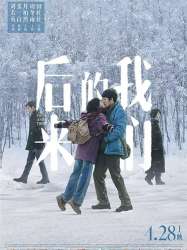
Us and Them (2018)
Directed by Rene Liu
Origin Chine
Genres Drama, Romance
Actors Jing Boran, Zhou Dongyu, Tian Zhuangzhuang
Roles Jianqing's Father
Rating74%





Durant la période mouvementée du chunyun, 2 étrangers reviennent chez eux en train.

Love Education (2017)
, 2hDirected by Sylvia Chang
Origin Chine
Genres Drama
Actors Sylvia Chang, Tian Zhuangzhuang, Rene Liu, Wang Zhiwen
Roles Yin Xiaoping
Rating72%





Une vieille dame mourante se rappelle ses meilleurs moments. Sa fille, Hui Ying, décide de déplacer la tombe de son père de son village natal pour qu'il rejoigne celle de sa femme. Mais sa première femme, surveillant la tombe depuis des années refuse, créant un désaccord impactant le village entier.

Monk Comes Down the Mountain (2015)
, 2h3Directed by Chen Kaige
Origin Chine
Genres Comedy, Action, Historical, Martial arts
Themes Sports films, Martial arts films
Actors Aaron Kwok, Lin Chi-ling, Chang Chen, Yuen Wah, Wang Xueqi, Vanness Wu
Roles Peng Xiaowen
Rating54%





Le film, basé sur un best-seller, raconte l’histoire d’un moine taoïste doué en kung-fu qui quitte une montagne isolée pour aller en ville dans les années 1920 et y découvrir son rôle dans le monde laïque, où il devient impliqué dans des complots et rencontre d’étranges personnages.

Nightfall (2012)
, 1h48Origin Hong kong
Genres Thriller, Action, Crime
Actors Simon Yam, Nick Cheung, Michael Wong, Candice Yu, Gordon Liu, Tian Zhuangzhuang
Roles Former prison guard
Rating63%





20 years ago, a 19-year-old Wong Yuen-yeung was convicted of murdering an 18-year-old Eva and was sentenced to life imprisonment. Now, after being released on parole, he starts stalking Zoe, young pianist. Zoe is the daughter of Han Tsui, a famous musician, and she resembles Eva in appearance. Han Tsui is very abusive and controlling towards Zoe. He does not allow her to have any male friends, and justifies his actions as "protecting" her from harm.
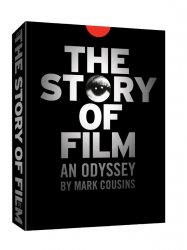 , 15h15
, 15h15Genres Documentary
Themes Documentary films about business, Documentary films about the film industry
Actors Alexandre Sokourov, Norman Lloyd, Lars von Trier, Paul Schrader, Kyōko Kagawa, Haskell Wexler
Roles Self
Rating83%





L'histoire du cinéma international racontée à travers l'histoire de l'innovation cinématographique. Couvrant six continents et douze décennies, il montre comment les cinéastes sont influencés par les événements historiques de leur époque et par les autres cinéastes.
Director
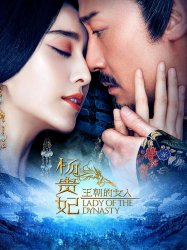
Lady of the Dynasty (2015)
Directed by Tian Zhuangzhuang, Zhang Yimou
Genres War, Historical, Romance
Actors Fàn Bīngbīng (范冰冰), Leon Lai, Joan Chen, Shun Oguri, Sam Voutas, Wen Zhang
Rating43%






The Warrior and the Wolf (2009)
, 1h40Directed by Tian Zhuangzhuang
Genres Drama, Science fiction, Action, Historical
Actors Maggie Q, Joe Odagiri
Rating39%





General Zhang is the commander of a northern border's army camp which repels the attacking barbarians every year. When snowfall make the support of the base with supplies impossible, the troops return home.

The Go Master (2007)
, 1h44Directed by Tian Zhuangzhuang
Genres Drama, Biography
Actors Chang Chen, Sylvia Chang, Akira Emoto, Ayumi Itō, Keiko Matsuzaka, Kaho Minami
Rating61%





The Go Master shines a light on the life and times of Wu Qingyuan, pronounced Go Seigen in Japanese. Wu is considered the greatest Go player of the 20th century, his talents bringing him from his native China to a professional career in Japan when he was only a teenager. Based on Wu's autobiography, this elegantly shot and remarkably restrained biopic follows the life of a singular figure, fascinating not only for his genius and achievements in the game of Go, but also for his unique experiences as a Chinese man in Japan during an immensely turbulent period in history. Acclaimed Taiwanese actor Chang Chen (Crouching Tiger Hidden Dragon) portrays the titular role in a subtle, poignant performance that is as penetrating as it is opaque, underlying the brooding lyricism of the film. The Go Master co-stars Sylvia Chang, Matsuzaka Keiko, Emoto Akira, and Ito Ayumi, and Wu Qingyuan himself appears briefly in the film's prologue. Also of note is the film's costume design, which is by renowned designer Wada Emi (Ran, Hero, House of Flying Daggers).
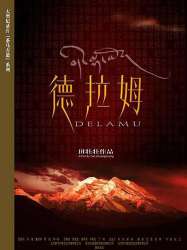
Directed by Tian Zhuangzhuang
Genres Documentary
Rating70%





Carnet de voyage dans les montagnes du Tibet et du Yunnan sur la piste de l'ancienne route des caravanes du thé et des chevaux. Tian Zhuangzhuang s'est plongé au cœur des montagnes au rythme des anciennes caravanes. Filmé en numérique, c'est un poème dédié à la mémoire des anciens et aux espoirs des jeunes des montagnes.

Springtime in a Small Town (2002)
, 1h56Directed by Tian Zhuangzhuang
Origin Chine
Genres Drama, Romance
Rating68%





The film follows Fei Mu's original fairly closely. Zhang Zhichen (Xin Baiqing), a city doctor, comes to visit his old friend from school Dai Liyan (Wu Jun) shortly after the war against the Japanese has ended. Dai is sickly although Zhang suspects it to be mainly a case of hypochondria. While visiting, he meets Liyan's wife, Yuwen (Hu Jingfan) and Liyan's young teenage sister Dai Xiu (Lu Sisi).

The Blue Kite (1994)
, 2h20Directed by Tian Zhuangzhuang
Origin Chine
Genres Drama, Historical
Themes Politique, Political films
Actors Pu Cunxin, Lü Liping, Guo Donglin
Rating74%





The story is told from the perspective of a young boy (铁头, Tietou, literally meaning 'iron head') growing up in the 1950s and 1960s in Beijing. Three episodes – Hundred Flowers Campaign, the Great Leap Forward and the Cultural Revolution – show the family members evolving, e.g. from the real father, the "loving patriarch," to the protective but unemotional stepfather.
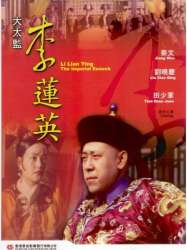 , 1h50
, 1h50Directed by Tian Zhuangzhuang
Genres Biography
Actors Jiang Wen, Xu Fan (徐帆), Liu Xiaoqing
Rating65%





À travers l'histoire de Li Lianying qui servit pendant cinquante-deux ans l’impératrice douairière Cixi, évocation de la vie et du rôle des eunuques dans la cité interdite.
 Connection
Connection




